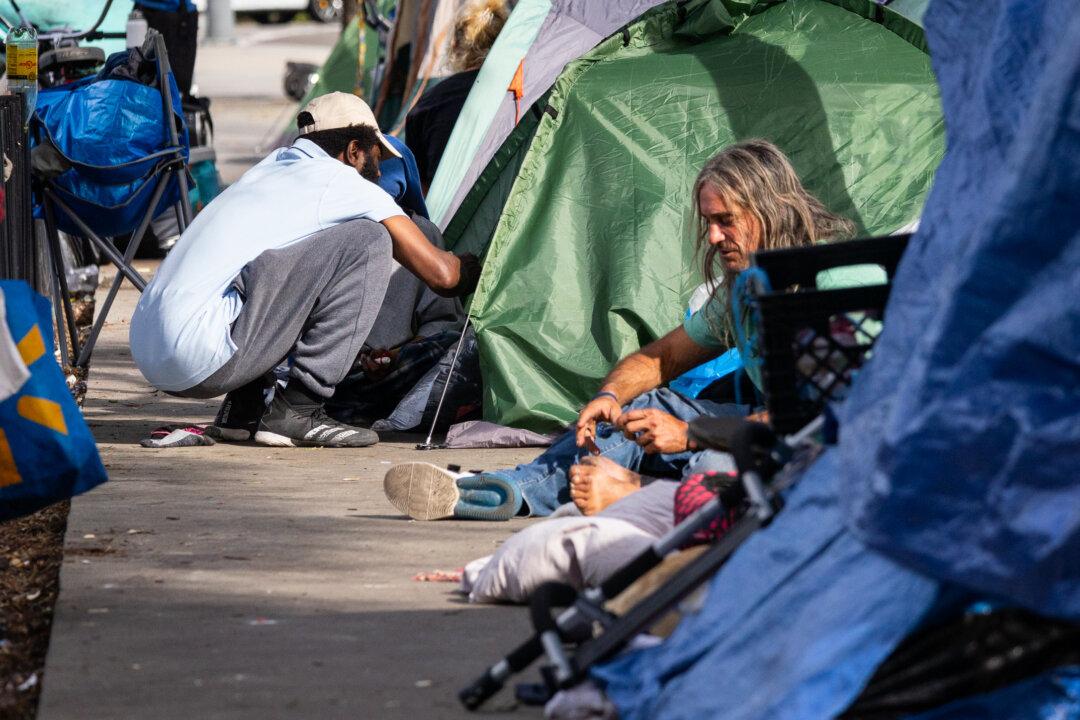Santa Monica, an iconic California beach town destination attracting millions of visitors yearly, is facing a crisis, according to locals, with rising homeless and crime interfering with people’s safety, threatening the survival of businesses, and tarnishing the city’s reputation.
One passerby at Pacific Palisades Park, which stretches down the city’s coastline and crosses in front of the Santa Monica Pier, told The Epoch Times that as an elderly woman, she’s constantly on the lookout for what she called crazed homeless people during her daily walks through the park.





